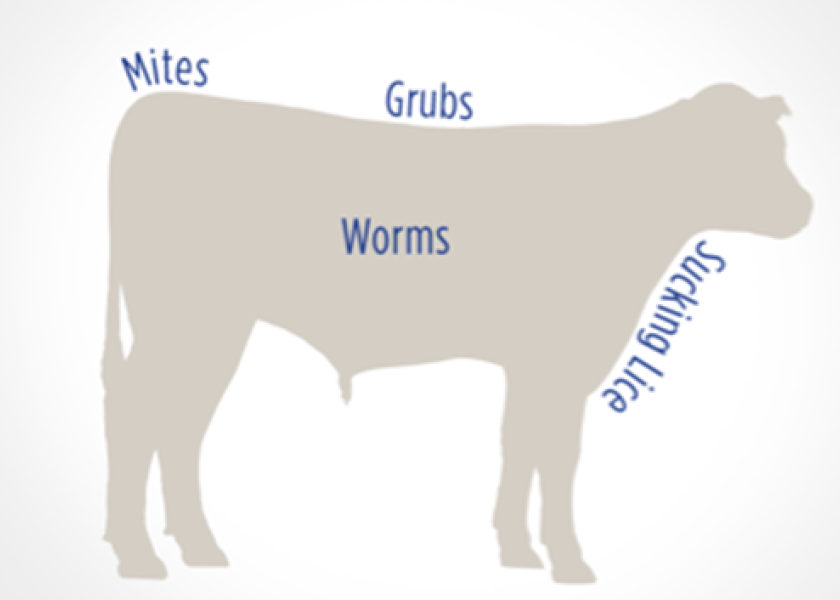Unseen Damage From Parasites Can Steal From Your Bottom Line

Deworming your calves can keep your bottom line healthy. The first step is understanding the limits of current management practices. That’s why it’s important for you to work with a veterinarian to do diagnostics and determine what is working in your parasite control program. Dr. Mark Alley, DVM, senior technical service veterinarian, Zoetis, puts it in perspective when he says, “Not deworming nursing calves is probably the biggest obstacle that we have to overcome. Most [producers] just don’t think it’s an issue.”
Despite great progress in controlling parasites, too many operations fail to consider active ingredients for specific parasite challenges — or even deworming at all. Failure to deworm calves in the spring can limit the calf's ability to reach its full genetic potential.
Advancements have made parasite infestations primarily a subclinical issue, so producers assume there is no problem because they don’t see obvious clinical symptoms or death losses, said Dr. Mark Alley, DVM, senior technical service veterinarian, Zoetis. Because the infestations are subclinical, it’s hard to visualize the calves may be 10 pounds lighter, but, as Dr. Alley said, “In the sale check, that makes a difference.”
“Not deworming nursing calves is probably the biggest obstacle that we have to overcome,” he said. “Most just don’t think it’s an issue.
“Part of the reason for these management decisions comes down to the success of macrocyclic lactones in stopping the loss of cattle due to brown stomach worm (Ostertagia) infestations,” Dr. Alley said. For a time, the industrywide urgency of that problem took the focus away from working to control internal parasites like Cooperia, Nematodirus and Haemonchus. And, as time went on, veterinarians discovered benzimidazole dewormers treated those parasites much more effectively than macrocyclic lactones did.
The first step is understanding the limits of current management practices. It is important for cattle producers to work with a veterinarian to do diagnostics and determine what is working in their parasite control program.
As Dr. Alley explains, there are some challenges at the cow/calf level understanding which parasite is present. It is believed older cows develop some resistance to Cooperia. Cooperia, Nematodirus and Haemonchus typically are a greater parasite challenge in younger animals. “But the only real way to determine which parasites are present is to get cultures or PCR [polymerase chain reaction] of the eggs from fecal samples,” Dr. Alley said.
An example Dr. Alley shares is the assumption that winter weather kills a lot of parasites, specifically the larvae and eggs in the environment. “In reality, cold weather doesn’t have a very big impact at all on them,” Dr. Alley said.
As soon as warm weather returns enough to grow grass, the parasite resumes its life cycle on the pastures.
“As a result, we get really short grass that’s just greening up, and with the right-size, right-age calf, they’re going to start nibbling on grass,” Dr. Alley said. “And when they do graze, they may be consuming some parasites with their first forage consumption.”
Dr. Alley recommends cow/calf producers work closely with their veterinarian to develop an effective parasite control program for cows and calves that addresses the parasite challenges in their geographic area.
For more information, visit GetLessParasites.com for solutions from Zoetis.
Image Credit: Zoetis United States







